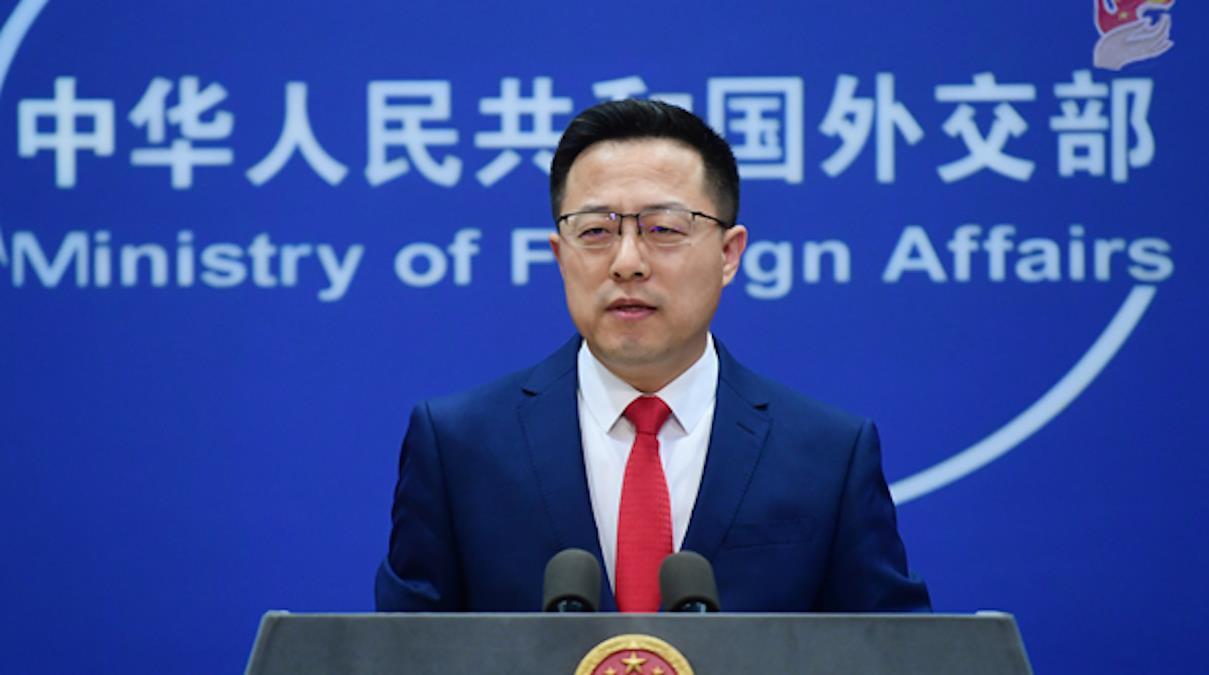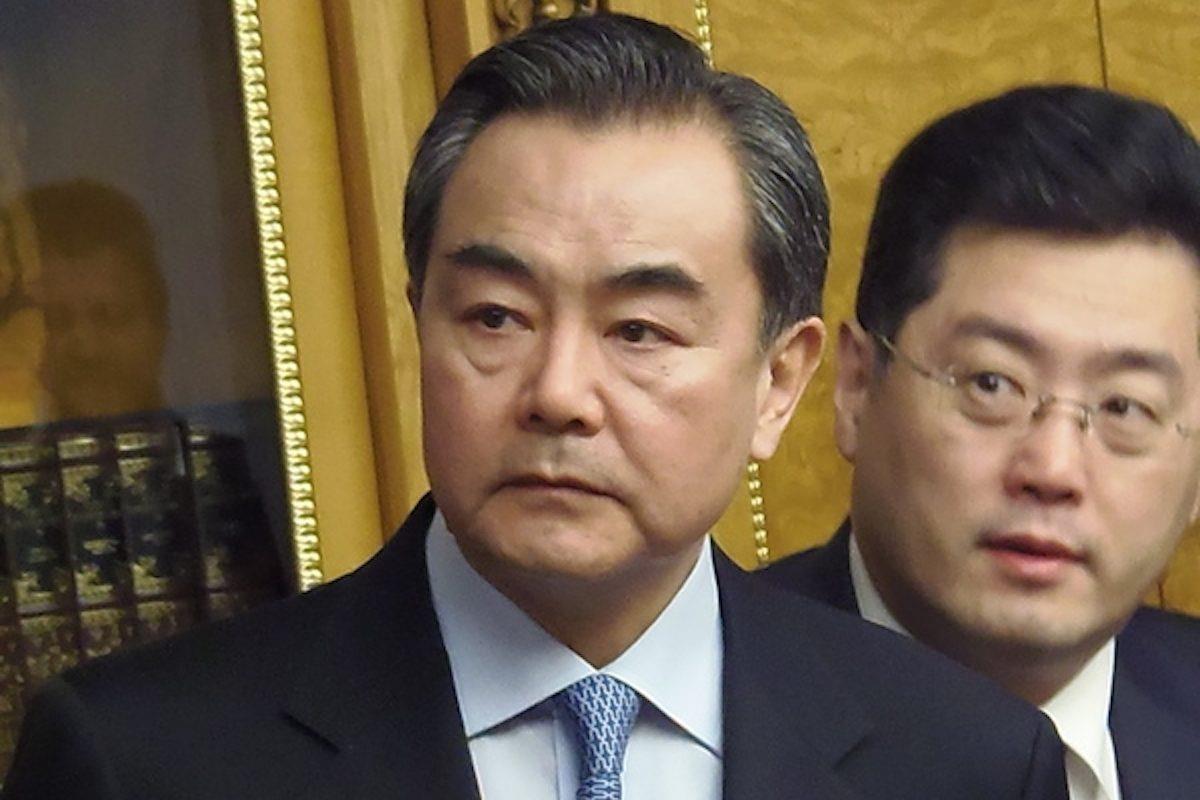(MENAFN- Asia Times) Over the past decade, Beijing adopted a harsher tone in its diplomatic speeches as bilateral relations between the US and China worsened due to trade and Taiwan matters. Things got so tense that news media, borrowing a term from a pair of Chinese action movies, began to report that the Chinese were following a“wolf warrior” strategy.
For a while, many Chinese proudly wore the evocative term as a badge of honor. Now, though, personnel changes in the foreign Ministry and a softened tone in diplomatic speeches can be seen as signs of a wish in Beijing to tone things down.
To hear some Chinese commentators tell it, the move of hawkish diplomat Zhao Lijian from foreign ministry spokesman to a lower-profile position could signal what might be termed – if we stick to the wildlife theme – at least a bit of domestication of China's“wolf-warrior” diplomatic strategy.
Those who discern change think that Beijing wants to respond carefully to events on the short-term horizon such as US Secretary of State Antony Blinken's visit to China in the first quarter of this year, the possible passage of a Taiwan Policy Act by the US Congress and the Taiwanese presidential election in January 2024.
Some could see hints of change last June when China still had its zero Covid policy in place. Wu Hongbo, the special representative of the Chinese government on European Affairs, told European business leaders that his country had made mistakes regarding its Covid policies due to“wolf warrior” diplomacy.
Another sign that some in power thought softening the antagonistic approach was the better part of valor came around that time when Beijing's Liaison Office in Hong Kong met representatives of various chambers of commerce in a closed-door meeting to seek their views on how to revive the financial hub's local business environment.
It's within that context that commentators are interpreting an announcement on Monday that Zhao Lijian had been appointed deputy chief of the foreign ministry's Department of Boundary and Ocean Affairs.

Zhao Lijian, former spokesperson for the Chinese Foreign Ministry. Photo: fmprc.gov.cn
Zhao had not been seen in the ministry's regular media briefing since his last appearance on December 2, 2022. Some netizens thought he had contracted the coronavirus. But close observers pointed to some uncharacteristic behavior a few days before his final appearance.
They said Zhao's reaction during a media briefing on November 28 was odd. Zhao stayed silent for 30 seconds after being asked by a foreign journalist about Beijing's stance on Chinese people's protests against the zero-Covid policy. He asked the journalist to repeat the question and he again stopped for 20 seconds before giving an answer.
Although the 50-year-old foreign affairs official was not demoted, he was horizontally transferred to a position that will give him much less media attention.
Wang Juntao, a US-based Chinese dissident and democracy activist, said there could be different reasons for the change in Zhao's position. Wang said it could be because Zhao's wife showed off her trip to Germany on social media while Shanghai was being locked down between March and May last year.
But Wang also said the move could signal that Beijing might be fine-tuning its“wolf warrior” policy.
A key date is November 14, 2022, when US President Joe Biden and Chinese President Xi Jinping held a face-to-face meeting on the sidelines of the G20 summit in Bali.
Biden told Xi that the US and China had to work together to address transnational challenges – such as climate change, global macroeconomic stability including debt relief, health security and global food security. Xi told Biden that the Taiwan matter was the most important red line that the US should not cross.
Not exactly buddy-buddy, but there were no fisticuffs. Chinese state media said the Xi-Biden meeting represented a good starting point for China and the US to resume pragmatic cooperation.
The standing committee of the National People's Congress announced on December 30 that the then-ambassador to the US Qin Gang would replace Wang Yi as the foreign minister. On January 1, Wang's title became director of the Office of the Central Commission for Foreign Affairs.

Wang Yi (left) and his replacement, Foreign Minister Qin Gang. Photo: Wikimedia Commons
On January 4, Qin published in The Washington Post an article titled,“The planet's future depends on a stable China-US relationship.”
“The world is wide enough for China and the US to both develop and prosper. The successes of our two countries are shared opportunities, not winner-take-all challenges,” he wrote.“We must not allow prejudice or misperception to ignite confrontation or conflict between two great peoples.”
Chinese President Xi Jinping in his New Year speech used a softer tone when commenting on Taiwan matters.
“The complete reunification of our motherland is an aspiration shared by people on both sides of the Taiwan Strait,” Xi said.“I sincerely hope that all the sons and daughters of the Chinese nation will join forces to create a brighter future for our nation.”
Guo Chungrung, deputy editor-in-chief at the United Daily News, said that, normally, personnel changes would be announced after the annual meeting of the National People's Congress in March. He said Qin's position change was announced earlier because Blinken would visit China in January or February.
Besides, Guo said, it would be good for Beijing to appoint its diplomats earlier as the Republicans had regained control in the US House of Representatives while Taiwan would have its presidential election in January 2024.
Lin Pao-hua, a political commentator, told Taiwanese news website RWNews that Xi changed his tone as he tried to ease tensions with the US and avoid provoking Taiwanese voters before Taiwan's presidential election.
Alex Tsai, a Taiwanese politician and a member of the Kuomintang, said the recent speeches of Qin and Wang showed that Beijing wanted to manage conflicts with Washington for the moment but the longer-term situation would depend on whether the US Congress passes the Taiwan Policy Act.
Last September, the US Senate approved the legislation, which if enacted will see Washington allocate billions of dollars to fortify Taiwan's defenses against a potential Chinese invasion. To be presented to Biden for his signature and become law, the act needs approval from the House of Representatives, which began a new term January 3.
read: chinese pundits: xi-biden talk can't fix everything
Follow Jeff Pao on Twitter at @jeffpao3